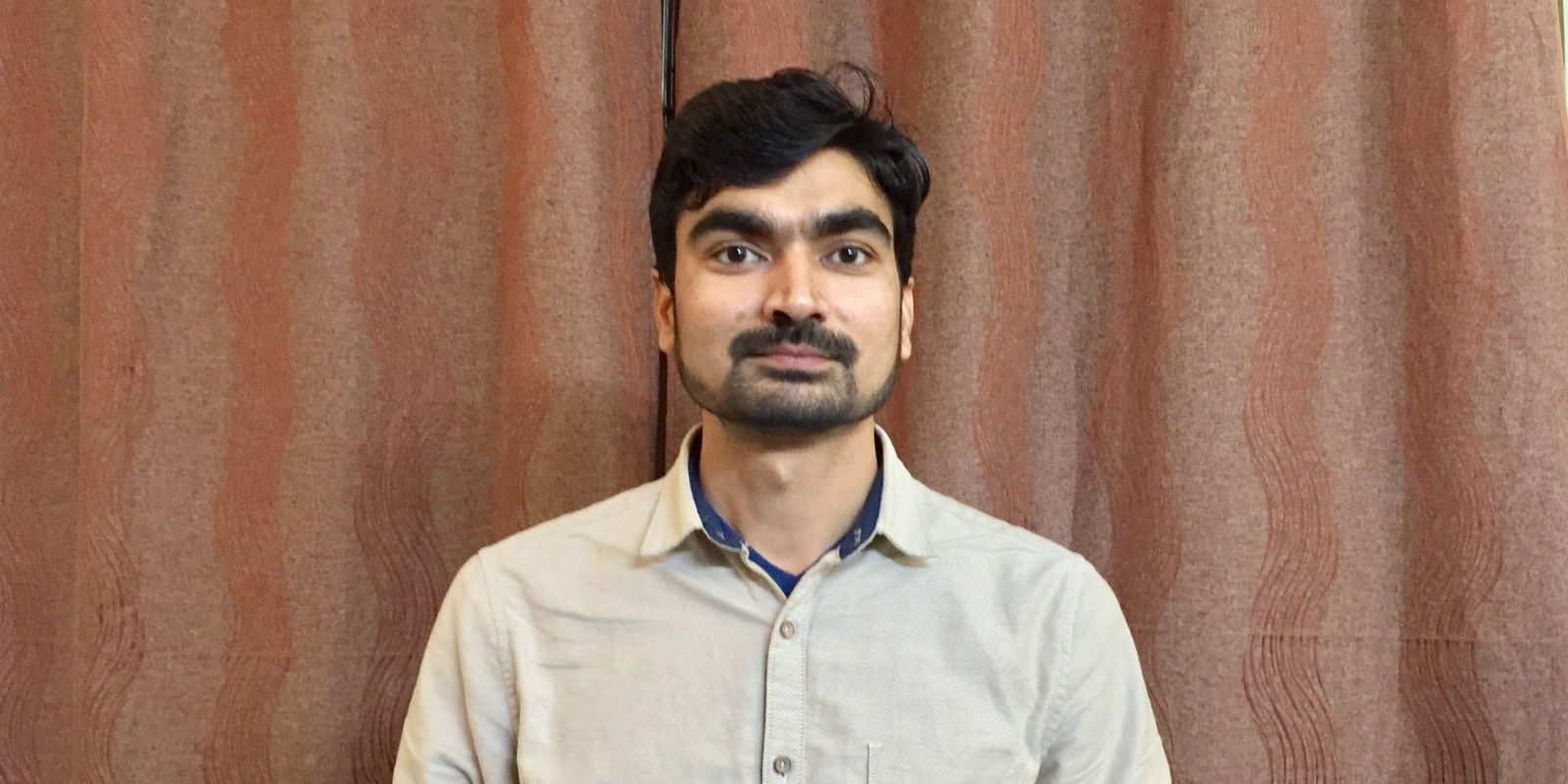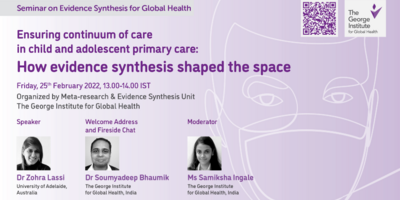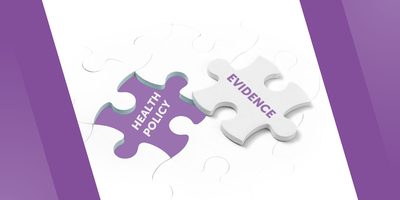
Interning at The George Institute India and exploring the World of Evidence Synthesis
An internship is a phase, which comes with an opportunity to have a real-time learning experience and exploring individual potential. I was fortunate to be shortlisted for an internship at The George Institute for Global Health India. My internship journey began in December 2019 with the Rapid Evidence Synthesis (RES) unit.
My earlier interest in evidence synthesis made learning more engaging and meaningful. The sessions I attended on RES, Knowledge Translation, developing search strategies, screening of citations on web-based application protocol writing etc. proved very helpful. I was briefed on various on-going projects, which enabled me to get a bigger picture of the work done at the institute and enabled interaction with colleagues from different units and teams.
During the tenure of my internship, I was engaged in multiple projects related to evidence synthesis, namely, Mapping of Randomized Controlled Trials conducted in India, Evidence on Health System Interventions to improve dialysis outcomes, PEICHAN: Evidence on interventions for improving the maternal and child health among the urban poor in low and middle-income countries, Snakebite: Burden and risk factors, etc. I was able to develop a good understanding of concepts like developing research questions, literature search strategies, screening of citations, appraisal of the evidence, data extraction, etc.
Additionally, I got an opportunity to get insights into evidence to policy in the E2P lecture series on 20th December 2019 on the topic of “Evidence2Policy- Lessons learnt from India’s National Health Mission”. The lecture was delivered by Dr. Rajani Ved, Director, National Health Systems Resource Centre (NHSRC) where I learnt about the significance of evidence in reforming health policies. The E2P lecture focused on various health challenges in India including newer health schemes, innovations, upgrading the quality of primary level care through integrating with secondary and tertiary level, and need for strengthening referral systems. The lecture gave me food for thought that as researchers we need to think beyond publications and actively engage in evidence implementation.
I perceive that I have a lot more to explore and learn, especially in the area of evidence synthesis. This is a domain I want to contribute to and explore in the future. I am looking forward to exploring missed domains by keeping myself in contact with mentors at the institute and share my learnings among my friends.
To conclude, the two months of my internship at TGI have been amazing with friendly and encouraging people across teams. I never felt alienated and always stayed motivated throughout this journey. It is one of a lifetime experiences. I hope to take these learning forward and contribute to helping improve the lives of millions in India through public health.



